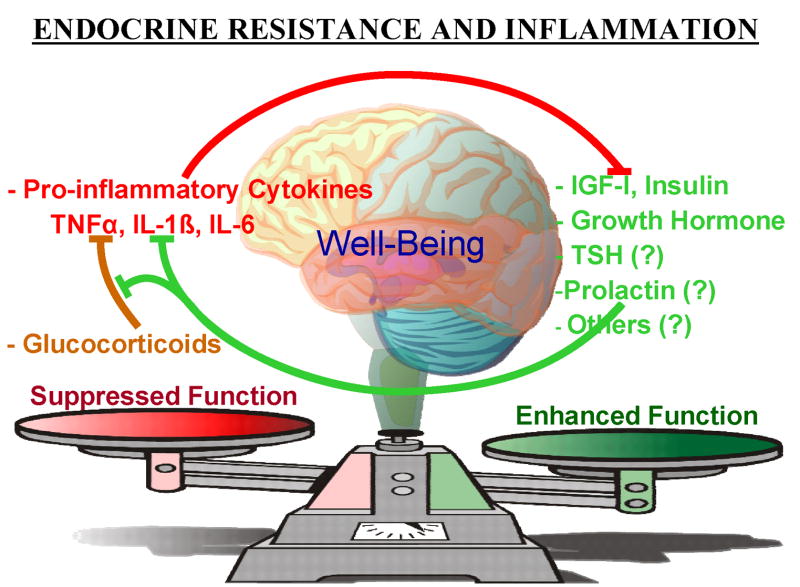Figure 1.
A newly-discovered regulatory system between the endocrine and immune systems. Hormone and immune system crosstalk can antagonize the biological functions of hormones and cause endocrine resistance, which ultimately affects human health and well-being. During health, there is an absence of inflammation and an optimal balance of hormones and pro-inflammatory cytokines. The adrenal steroid glucocorticoid hormones act in many peripheral tissues to inhibit synthesis and action of proinflammatory cytokines. This balance is disrupted during inflammatory states in both the periphery and the brain. One mechanism by which this occurs is at the cellular level, whereby proinflammatory cytokines antagonize receptor-signaling pathways in muscle, brain and cancer cells. The body often responds by producing more hormones to overcome this cytokine-induced endocrine resistance. In this way, the endocrine-immune system communication pathway is reciprocal because the rise in concentration of hormones increases the hormone/cytokine ratio. This rise in the amount of hormone relative to cytokine partially overcomes the suppressive actions of both glucocorticoids and proinflammatory cytokines. This scenario even occurs in the brain, as demonstrated by abrogation of TNFα-induced sickness behavior following central administration of IGF-I.

